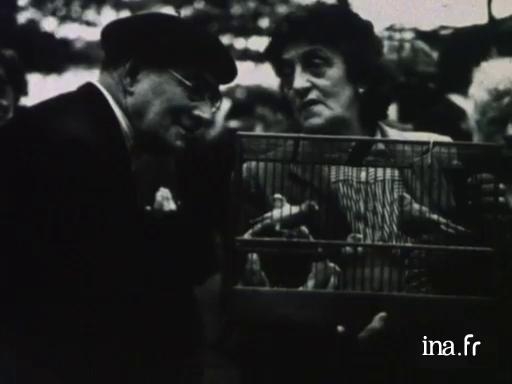Izis interview

Information
The photographer Izis talks about his conception of photography and his dreaming character. He also mentions his childhood in Lithuania and his arrival in Paris. This interview is illustrated by several photographs.
- Europe > France > Ile-de-France > Paris
- Europe > France > Limousin > Haute-Vienne > Limoges
- Europe > France > Provence-Alpes-Côte d'Azur > Bouches-du-Rhône > Marseille
- Europe > Lithuania
Context
Born in Lithuania in 1911, Israëlis Bidermanas, called Izis, was from a poor Jewish family.
As an adolescent, he was an apprentice to a photographer in his town and was passionate about painting. In 1930, he took refuge in Paris where he worked in different traditional studios. During the Second World War, his family was decimated. A refugee in Limousin, he worked there touching up photos under the name of Izis. In 1944 he was arrested by the Nazis. Once free, he joined the Resistance. He took several portraits of resistance fighters in a more lively and realistic style than he usually did. These photos would be his success at the end of the conflict.
Back in Paris, he met Brassaï, Laure Albin Guillot and E. Sougez. His traditional style from before the war evolved towards a poetic vision. He soon opened a studio and began to exhibit. In 1949, he was part of the launch of Paris Match, a title with which he would work for 20 years. During that time, he became friends with Chagall and Prévert and met several artists of the era that he would photograph. In 1950 he released his first book Paris des rêves. It was to be followed by several others, made alone or in collaboration with other artists. Paris des poètes published in 1977 would be his last book.
In 1951, he presented at the MOMA in New York at the exhibition Five French Photographers in the company of Cartier-Bresson, Ronis, Doisneau and Brassaï. In 1978, he was the guest of honour at the Arles Rencontres. He died in Paris in 1980.




